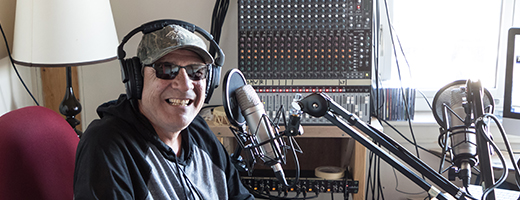Media and reconciliation
Learn how the Government of Canada is responding to the Truth and Reconciliation Commission's Calls to Action 84 to 86.
Based on data provided August 2021.

84. We call upon the federal government to restore and increase funding to the CBC/Radio-Canada, to enable Canada's national public broadcaster to support reconciliation, and be properly reflective of the diverse cultures, languages, and perspectives of Aboriginal peoples, including, but not limited to:
- Increasing Aboriginal programming, including Aboriginal-language speakers.
- Increasing equitable access for Aboriginal peoples to jobs, leadership positions, and professional development opportunities within the organization.
- Continuing to provide dedicated news coverage and online public information resources on issues of concern to Aboriginal peoples and all Canadians, including the history and legacy of residential schools and the reconciliation process.
What's happening?
In Budget 2016, the Government of Canada invested $675 million in CBC/Radio Canada over 5 years. This includes $75 million in new funds in 2016, as well as $150 million annually as a top up on the total budget invested by the Government of Canada, beginning in 2017. The annual top-up is a permanent increase to the total federal investment which supports the full range of programs and services it provides to Canadians. As the national public broadcaster, CBC/Radio-Canada plays a vital role in providing access to programs and services in the digital era, which includes Indigenous programming and services.
In its 2016 to 2017 Annual Report, CBC/Radio-Canada stated that the additional new funding from Budget 2016 enabled it to undertake key Indigenous initiatives such as creating additional Indigenous content, which includes its digital portal, Espaces autochtones, as well as hiring local Indigenous staff in Yellowknife to digitize CBC North's Indigenous language collection which spans over 6 decades. CBC's Indigenous Languages Archives project represents over 75,000 hours of audio programming in 8 Indigenous languages:
- Chipewyan
- Cree
- Dogrib
- Inuktitut
- Inuvialuktun
- Gwich'in
- North Slavey
- South Slavey
85. We call upon the Aboriginal Peoples Television Network, as an independent non-profit broadcaster with programming by, for, and about Aboriginal peoples, to support reconciliation, including but not limited to:
- Continuing to provide leadership in programming and organizational culture that reflects the diverse cultures, languages, and perspectives of Aboriginal peoples.
- Continuing to develop media initiatives that inform and educate the Canadian public, and connect Aboriginal and non-Aboriginal Canadians.
What's happening?
Aboriginal Peoples Television Network is responsible for the response to Call to Action 85.
86. We call upon Canadian journalism programs and media schools to require education for all students on the history of Aboriginal peoples, including the history and legacy of residential schools, the United Nations Declaration on the Rights of Indigenous Peoples, Treaties and Aboriginal rights, Indigenous law, and Aboriginal–Crown relations.
What's happening?
Canadian journalism programs and media schools are responsible for the response to Call to Action 86.